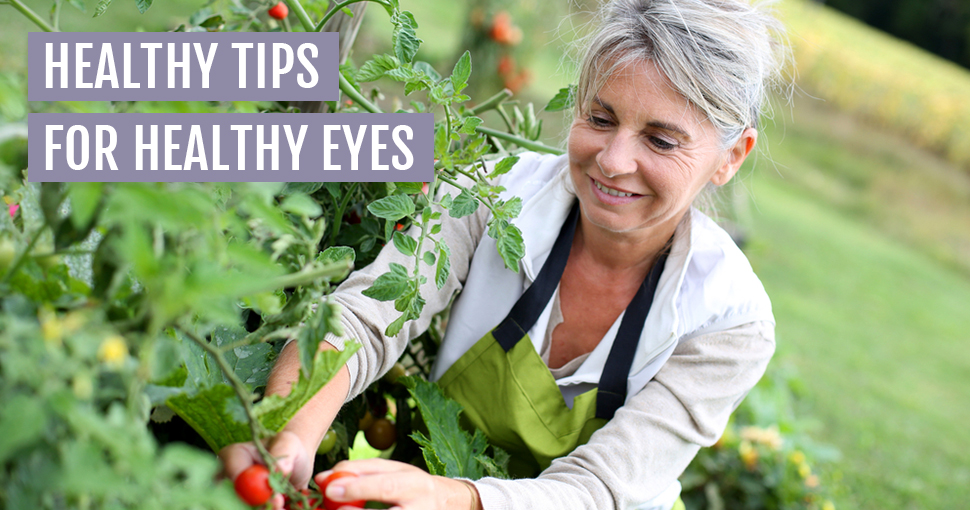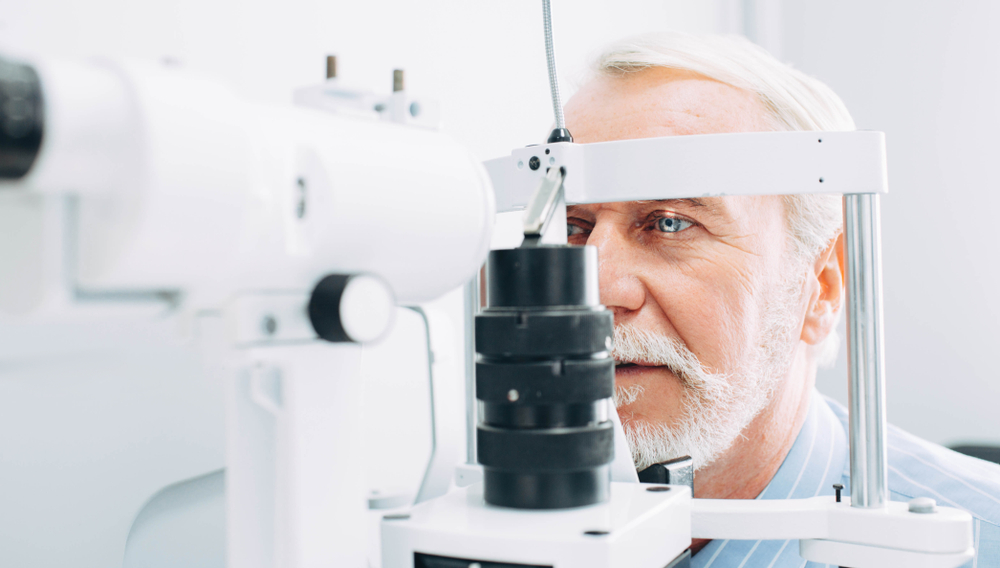10 Ways to Preserve Your Vision At Any Age

There are many rewards that come with age, but getting older can sometimes take a toll on vision. Have you noticed that your eyes get tired more easily? Do you find yourself adjusting fonts or turning up lights to see better? You can’t turn back time, but you can take steps to preserve your eye health at any age.
Good health habits can benefit your whole body – heart, mind, skin, muscles – and yes, even your eyes. Here are 10 eye-opening tips on how to help prevent vision loss and keep your eyes as healthy as possible.
1. Eat well.
Bugs Bunny introduced the idea that eating carrots helps your eyes, but did you ever notice that Popeye was always stronger than Bugs? What’s really good for your vision is eating a variety of vegetables, especially leafy greens like spinach and kale.


2. Stay active.
Regular physical activity can lower your risk of diabetes, high cholesterol and high blood pressure – conditions that can affect the health of your eyes.


3. Wear sunglasses.
Sunglasses not only can help you look cool, they also can help prevent damage to the retina and lens of your eye. Sun exposure is linked to developing cataracts as well as a condition called age-related macular degeneration (AMD), which is the leading cause of blindness in the U.S.

4. If you smoke, stop.
Quitting smoking is important to your health in many ways, including your eye health. Studies show that current or former smokers have a higher risk of developing cataracts and AMD,


5. Take breaks from computer screens.
Looking at a computer for a long time can strain and tire out your eyes. Rest your eyes with the 20-20-20 rule – take a break every 20 minutes to look at something about 20 feet away for 20 seconds.

6. Use safety eyewear.
Safety glasses are not just for construction workers. Wear eye protection when you’re playing sports such as hockey or baseball, or when you’re working at home on repair projects and gardening.


7. Know your family history.
You may have inherited your mother’s nose or your father’s mouth – or your grandmother’s eye disease. Because many eye conditions can be inherited


8. Get regular eye screenings.
The American Academy of Ophthalmology recommends that most adults get a baseline screening for eye diseases at age 40, which is when early signs of problems may start.



9. Don’t delay if you experience eye symptoms.
See an eye doctor without delay if you experience cloudy vision, flashes of light, double vision, dark spots in your field of vision, or other eye symptoms.


10. Practice good contact lens care.
Using contact lenses can become so routine that it’s easy to get a bit lax. But avoid behaviors such as sleeping in your contacts (unless they are approved for overnight wear), using saliva or water to clean them, using expired cleaning solutions, or using disposable lenses for longer than recommended.1 Poor contact lens practices can cause damage to your cornea and even vision loss.

 Sources
Sources
1 American Academy of Ophthalmology. Top 10 Tops to Save Your Vision. Available at: https://www.aao.org/eye-health/tips-prevention/top-10-tips-to-save-your-vision-2. Accessed September 19, 2019.
2 National Eye Institute. Keep Your Eyes Healthy. Available at: https://nei.nih.gov/learn-about-eye-health/healthy-vision/keep-your-eyes-healthy. Accessed September 19, 2019.
3 John Hopkins Medicine. Best Way to Age-Proof Your Vision. Available at: https://www.hopkinsmedicine.org/health/wellness-and-prevention/best-way-to-age-proof-your-vision. Accessed September 19, 2019.
4 American Academy of Ophthalmology. Eye Exam and Vision Testing Basics. Available at: https://www.aao.org/eye-health/tips-prevention/eye-exams-101. Accessed September 19, 2019.
5 Harvard Medical School. Warning signs of a serious eye problem. Available at: https://www.health.harvard.edu/diseases-and-conditions/warning-signs-of-a-serious-eye-problem. Accessed September 19, 2019.




